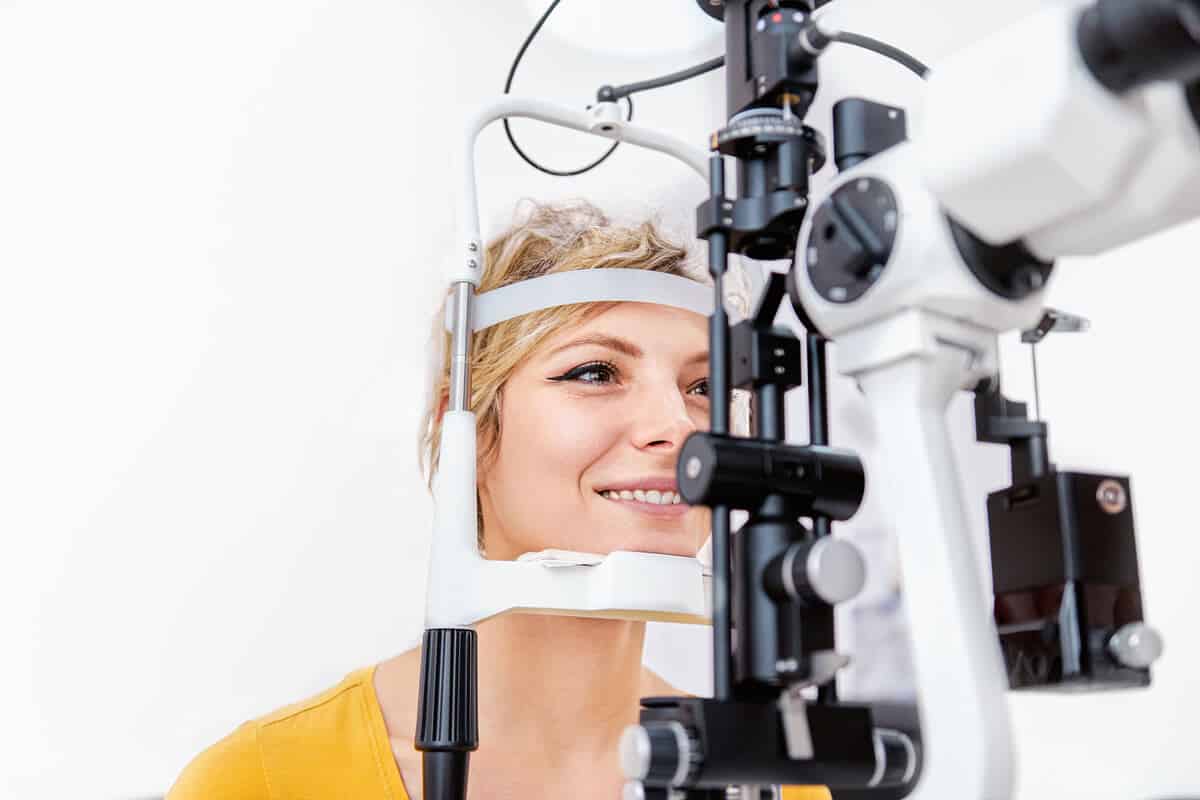How to Prevent Glaucoma: Proven Tips for Optimal Eye Health
Did you know that glaucoma is one of the main causes of blindness worldwide? With the potential to steal your vision without warning, it’s crucial to prioritise eye health and take preventive measures. In this blog post, we’ll discuss proven tips on how to prevent glaucoma, helping you understand the types of glaucoma, recognise risk factors, and protect your eyes for a brighter future.
Understanding Glaucoma and Its Types
Glaucoma is one of the eye diseases that can lead to partial or complete blindness if not addressed properly. It affects the optic nerve, which carries visual information from your eyes to your brain, and causes damage because of increased pressure inside the eyeball.
Open-angle glaucoma is very common and occurs when the drainage system in the eye gradually becomes less efficient over time – resulting in greater pressure build-up inside it. With angle closure glaucoma (ACG), there’s a sudden blockage of this same network, causing a spike in intraocular tension known as acute ACG. This requires medical help immediately! Normal-tension glaucoma develops with normal levels of ocular pressures, yet it still damages one’s vision due to irregularities within its affected areas, while Pigmentary Glaucoma refers back again to poor efficiency in drainage when accumulations of pigment serve as the clog, thereby also leading to high pressure inside eye tissues. Knowledge concerning these various types can greatly support early recognition and prevention of glaucoma before it leads to problematical malfunctioning optic nerve structures within one‘s eye region.
Recognising Glaucoma Risk Factors
 Preventive measures such as recognising the risk factors for glaucoma can help identify it early. These unavoidable risks include age, family history, ethnicity, and blood pressure. People of African descent with diabetes or a familial record of having glaucoma tend to have higher chances of developing this eye condition than others do. Scientists believe that certain genes might contribute towards increased eye pressure and damage to the eye’s optic nerve, leading to glaucoma. Understanding these dangers is key when deciding about your ocular health habits.
Preventive measures such as recognising the risk factors for glaucoma can help identify it early. These unavoidable risks include age, family history, ethnicity, and blood pressure. People of African descent with diabetes or a familial record of having glaucoma tend to have higher chances of developing this eye condition than others do. Scientists believe that certain genes might contribute towards increased eye pressure and damage to the eye’s optic nerve, leading to glaucoma. Understanding these dangers is key when deciding about your ocular health habits.
For those whose circumstances place them amongst individuals more prone to being affected by this disease, annual or biannual screenings after 35 years old should become routine so that any signs may be detected before permanent vision loss occurs, which could occur if not treated correctly once identified.
Importance of Regular Eye Exams
Regular eye examinations are critical for the early detection and prevention of glaucoma, as they can identify raised intraocular pressure, destruction of the optic nerve, and decreased peripheral vision. A full eye exam usually contains dilation to get an improved view inside your eyes, checking at their backside for any evidence related to glaucoma diagnosis or cataract formation, along with assessments for corneal diseases plus evaluation on possible future development issues regarding other visual concerns.
For those without risk factors associated with glaucoma, having consistent regular exams per age recommendation is needed so that one may avoid such illnesses from progressing leading up to sight reduction if not diagnosed ahead of time. To maintain healthy vision, it’s thus crucial that you undergo usual tests, which would uncover threats otherwise left undetected through a comprehensive analysis of your ocular health status.
Reducing Intraocular Pressure: Lifestyle and Medications
A healthy lifestyle may help reduce glaucoma risk by lowering intraocular pressure and preserving central vision. Regular physical activity such as walking or jogging three times a week is particularly beneficial for preventing primary open-angle glaucoma, whereas the Glaucoma Foundation advises against inverted postures, which can raise eye pressure and potentially result in acute angle closure glaucoma. Medications like ocular drops, laser procedures, and surgery might also be prescribed to keep the condition under control. However, these treatments provide relief from symptoms of an existing disease rather than prevention measures employed beforehand.
Preventing Eye Injuries for Glaucoma Prevention
 Glaucoma is a severe eye disorder that, if not addressed, can result in blindness. Some risk factors, such as age and heredity, are beyond our control, but there are proactive measures one can adopt to deter its development or slow its progress.
Glaucoma is a severe eye disorder that, if not addressed, can result in blindness. Some risk factors, such as age and heredity, are beyond our control, but there are proactive measures one can adopt to deter its development or slow its progress.
Prioritising routine eye check-ups is critical as early diagnosis and intervention can drastically curtail the chances of losing vision.
Wearing protective eyewear during activities that pose a risk to your eyes can further safeguard against this condition.
Leading a healthy lifestyle, including regular exercise, a nutritious diet, and managing conditions like hypertension, can indirectly promote eye well-being.
It’s also advised to moderate caffeine consumption and evenly distribute fluid intake throughout the day.
Staying informed and adopting a proactive stance towards eye health is key.
Managing Glaucoma with Treatment Options
For anyone diagnosed with glaucoma, the most important thing to be aware of is treatment options that can slow down the disease and prevent loss of vision. Treatments such as prescription eye drops, oral medicines, laser therapy or surgery are all available for those struggling with this condition. Glaucoma medications work by lowering intraocular pressure, which helps reduce damage to optic nerves and preserve long-term sight. Following your doctor’s orders when it comes to a tailored treatment plan is critical in helping manage glaucoma well overall.
Early detection is essential to avoid permanent blindness from glaucoma. Knowledge of different treatments and good communication between you and your healthcare provider will play an enormous role in protecting your eyesight, so please take advantage immediately!
Coping with Glaucoma: Support and Resources
Living with glaucoma can be difficult, but guidance and understanding from healthcare professionals, family members, friends and resources may help you keep a high quality of life. Healthcare providers are able to offer advice on handling the disease, while loved ones can provide emotional support.
Having access to information is critical in facing these challenges associated with glaucoma, such as online forums that link people who have similar experiences. Providing a secure space for sharing ideas along with educational material regarding how this condition works could bring beneficial assistance throughout your experience living with it.
Overall, actively obtaining aid will foster an improved lifestyle when dealing with eye disorder glaucoma. It is important to remember that there isn’t any need to face it alone and that many sources can give ample aid during this journey.
Frequently Asked Questions
 What triggers glaucoma?
What triggers glaucoma?
Glaucoma is an eye condition characterised by increased pressure in the eyeball and disruption of its drainage system. This affects the optic nerve, leading to progressive damage and, eventually, visual field loss over time. It’s a chronic disorder that requires ongoing attention for successful management. Symptoms may include high intraocular pressures due to blocked fluid outflow or gradual vision changes from erosion of nerves associated with optic discs because of glaucoma-induced tissue.
What foods prevent glaucoma?
A balanced diet that contains antioxidants and omega-3 can help reduce the risk of developing glaucoma. Fruits such as peaches, citrus fruits, and berries are excellent sources of these components, while green leafy vegetables like carrots or cruciferous vegetables provide similar beneficial effects. Eating these healthful items regularly can prevent glaucoma.
Is there a vitamin to prevent glaucoma?
It has been suggested that Vitamin B3 could potentially be used for the prevention of glaucoma, though taking Vitamins A, C and E in combination might provide some defence. Nonetheless, there is no solid evidence to support vitamin supplements to keep glaucoma away. It seems impossible to say whether vitamins can be effective in preventing this eye condition at present.
What are the first signs that glaucoma is developing?
Signs that someone is developing glaucoma include blurry vision, a great deal of eye pain, redness in the eyes and coloured circles appearing around lights.
Summary
It is necessary to understand the risk factors associated with glaucoma and take proactive measures, such as regular eye exams, protective eyewear and a healthy lifestyle, in order to prevent this serious vision-threatening eye disease. Taking control of your ocular health today can ensure you keep clear sight for years to come – don’t miss out on any opportunities available when it comes to preserving your precious eyesight!
Note: Any surgical or invasive procedure carries risks. Before proceeding, you should seek a second opinion from an appropriately qualified health practitioner.
References:
Don’t Let Glaucoma Steal Your Sight
https://www.cdc.gov/visionhealth/resources/features/glaucoma-awareness.html
Glaucoma
https://www.mayoclinic.org/diseases-conditions/glaucoma/symptoms-causes/syc-20372839
What Can I Do to Prevent Glaucoma?
https://glaucoma.org/what-can-i-do-to-prevent-glaucoma/


 What triggers glaucoma?
What triggers glaucoma?



Leave a Reply
Want to join the discussion?Feel free to contribute!